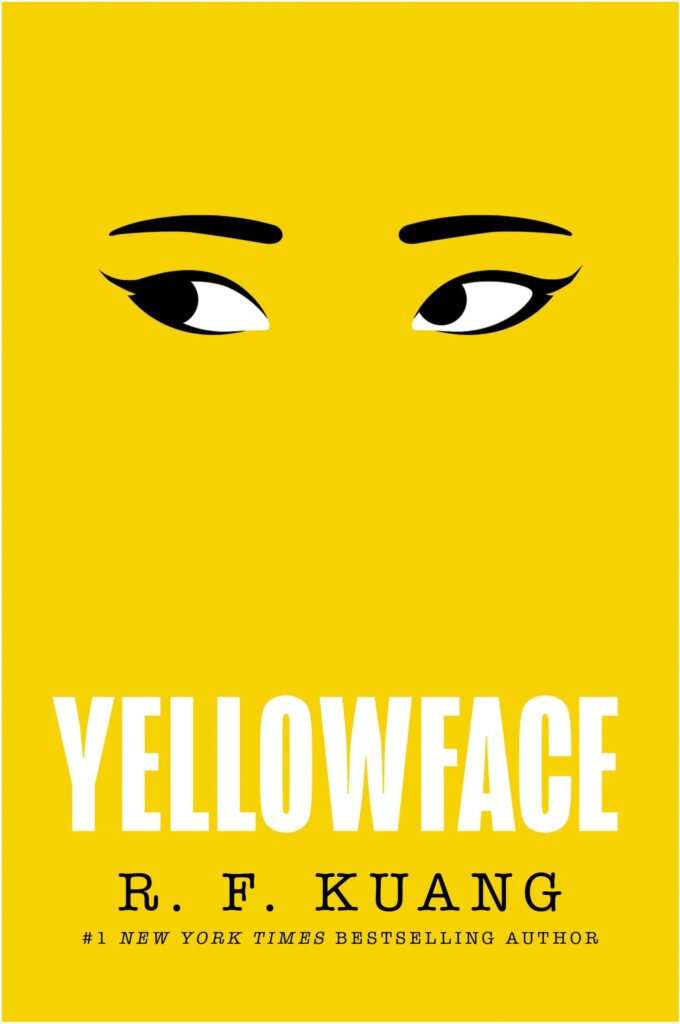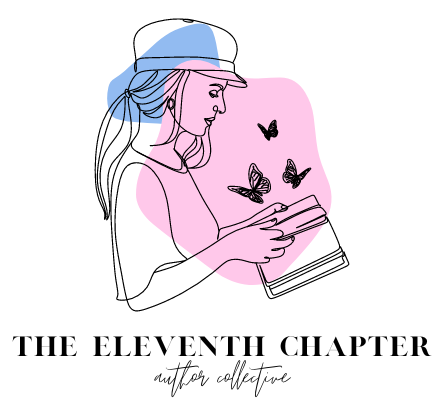By Sayword B. Eller
I have so much to say about this book. So much, in fact, that the words begin to stumble over one another, my message gets trampled, and I’m left staring at the screen lost as to what I should write. But here I am, committed to writing a blog post about what was probably my most, and least, enjoyable book of 2023.
So, let me try to get on with it then.
I knew I wanted to read Yellowface from the time I heard about it in spring 2023. It was about a writer, after all. A writer who steals her friend’s manuscript and passes it off as her own. It is one of almost every writer’s biggest fears, right? That someone else will steal their work, that another writer will beat them to the punch. If you’re not a writer, trust me. This is 100% facts.
It’s stunning how many questions I see from newbie writers about how to copyright their work so their critique partners don’t run away with their one-in-a-million idea.
But stolen work isn’t really the point of Yellowface. At least by my interpretation. At its root, Yellowface is about loneliness, imposter syndrome, fear of never being recognized (or worse, being recognized and then forgotten), who has the right to tell what stories, (my personal favorite) the absolute shitshow that publishing is, and the power of social media.
To the final point, I think if this book were being published in 2025, Twitter would’ve been replaced with BookTok dramas and Goodreads review bombs, though the book did touch on the latter just a bit, we all know Twitter isn’t as powerful as it was in 2021/2022 when this book was written. Still, the principles are the same.

This was my first R. F. Kuang book. I’ve seen readers gushing about Babel on BookTok, but it doesn’t seem like my type of book. Yellowface, however, is absolutely my kind of book. I, like many people, say I don’t like drama, but I am there, waiting to hear every juicy morsel of scandal. Yellowface is the drama and so much more.
Yes, it’s a fast read, it’s wild, it’s unhinged, but it’s also thoughtful, explorative, and it’s true.
It is true that many writers are lonely. They spend their time alone writing, creating, revising, querying, and some of them don’t have any writer friends (though everyone should). I have a great group of writer friends but sometimes feel lonely. Kuang captures why. There is nothing like being a writer is both a positive and a negative statement. There is nothing better than being a writer some days when the words are flowing and the accolades are coming in, as we see through June during the early days of her stolen book’s release. There is also nothing worse than being a writer, as is evidenced by the social media storms that keep June locked in her apartment for days, her paranoia, and (finally) her descent into madness (though not the classical kind). I actually looked at my husband while reading toward the end of the book and said, “I think this is a TellTale Heart retelling.” Athena Liu is the buried body and The Last Front her beating heart.
June is a thief, she’s an imposter, not only in writing, but when her agent and publisher encourage her to go by Juniper Song (a name that sounds more Asian than June Hayward) and discourage her from doing in-person interviews and panels until the book comes out. Their way of “tricking” the public into believing the author of this WWI epic novel about Chinese diaspora labourers was written by someone of Asian descent, someone who is entitled to write this story.
Then, after The Last Front comes out, June is met with scrutiny over and over again because she is white and has written about the Chinese Labour Corps in WWI. Some believe she doesn’t have a right to tell such a story because she isn’t of Chinese or Asian descent, but the book is widely lauded as a carefully crafted and thoroughly researched novel (thanks mostly to Athena) about a group of forgotten people who made great sacrifices during the war. June isn’t the only person who faces backlash when it comes to telling stories, though. Even the deceased Athena Liu gets accused of stealing people’s lives to create her stories. Athena’s own mother admits to struggling with her daughter’s work because Athena used many of the lived experiences of her parents to tell her stories. So, did Athena Liu have the right to write about the Chinese diaspora or her parents’ experiences, or the experiences of the countless others she mined for her stories?
These questions go unanswered in Yellowface just as they will go unanswered here, but readers, especially those who are writers, will be left pondering the ethics of where their stories come from long after they turn the last page.
I could go on about Yellowface and the many artful layers Kuang created in the narrative, and indeed I do in a forthcoming essay, but for this post, I’ll leave you with this: If you enjoy extremely consumable fiction that is more than just a wild romp, you’re going to enjoy Yellowface. If you’re a writer, you’re going to enjoy seeing the bizarre world of publishing exposed and you might (MIGHT) even empathize with June once or twice in the book. No matter your label (reader or writer), this story has spilled all the tea and Kuang has done so in a way that will keep you engrossed to the very end. I encourage you to look past the surface, though, and see if you can spot all the different, masterfully crafted layers within. I’d love to know what you find!

